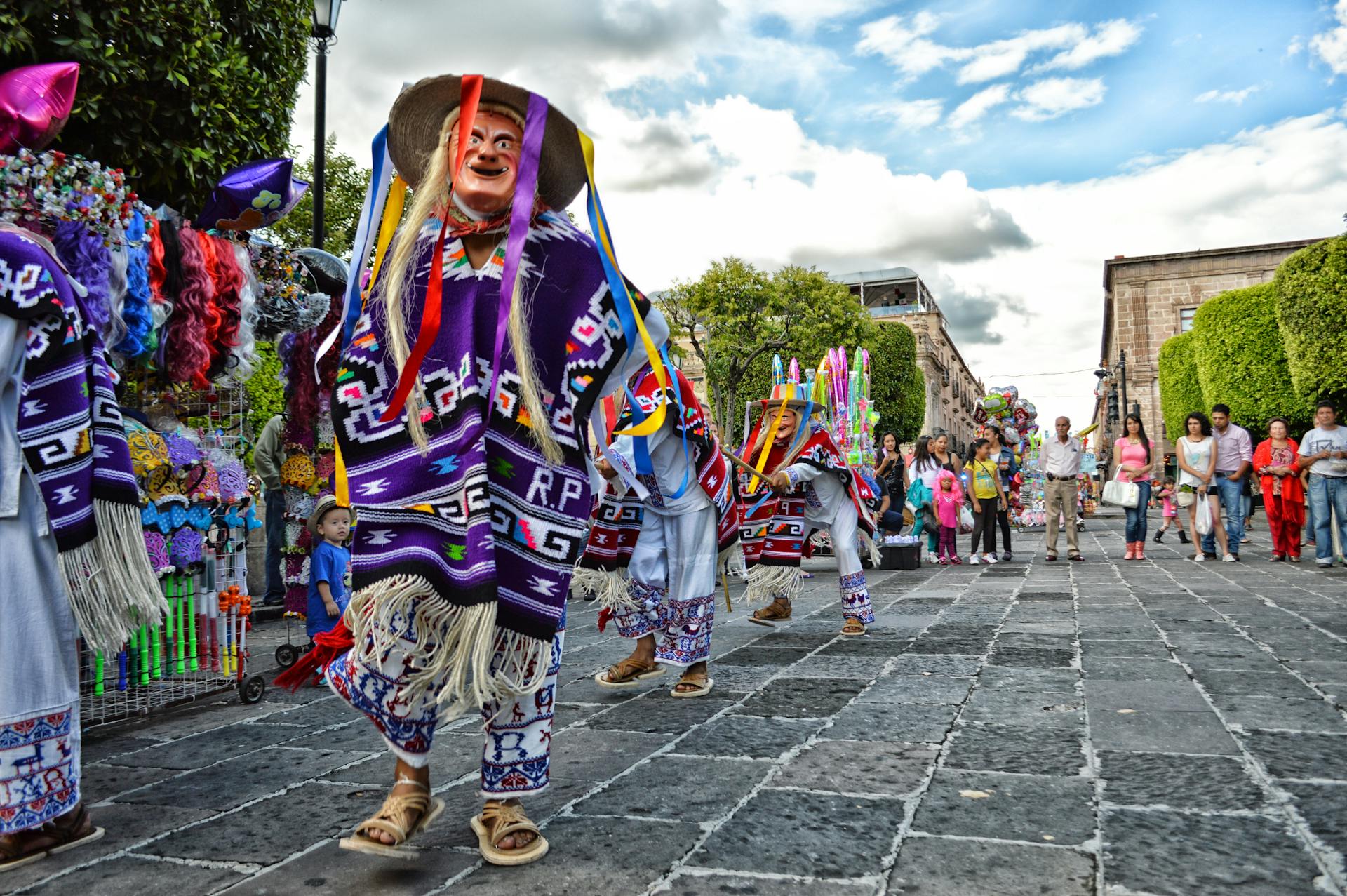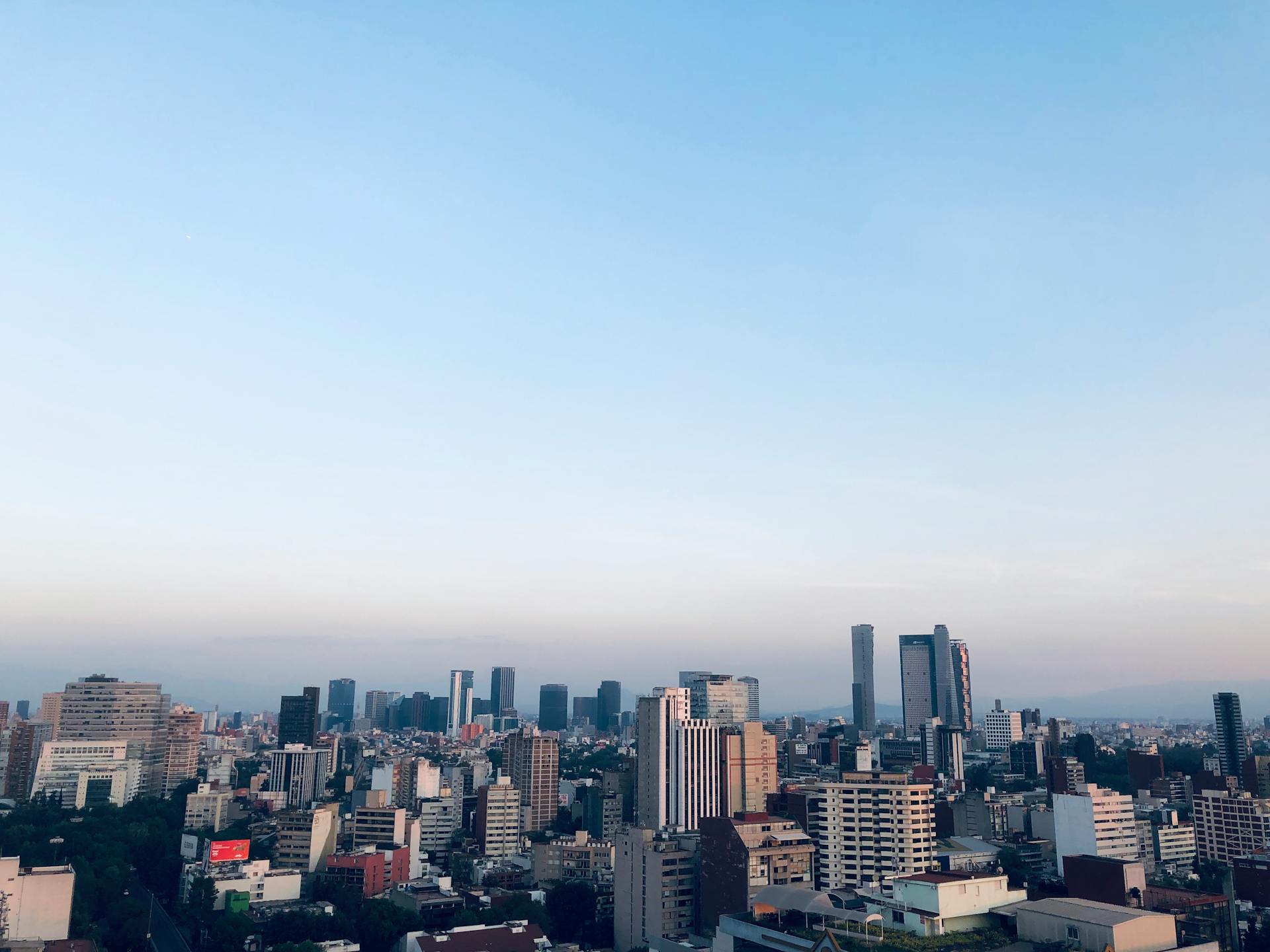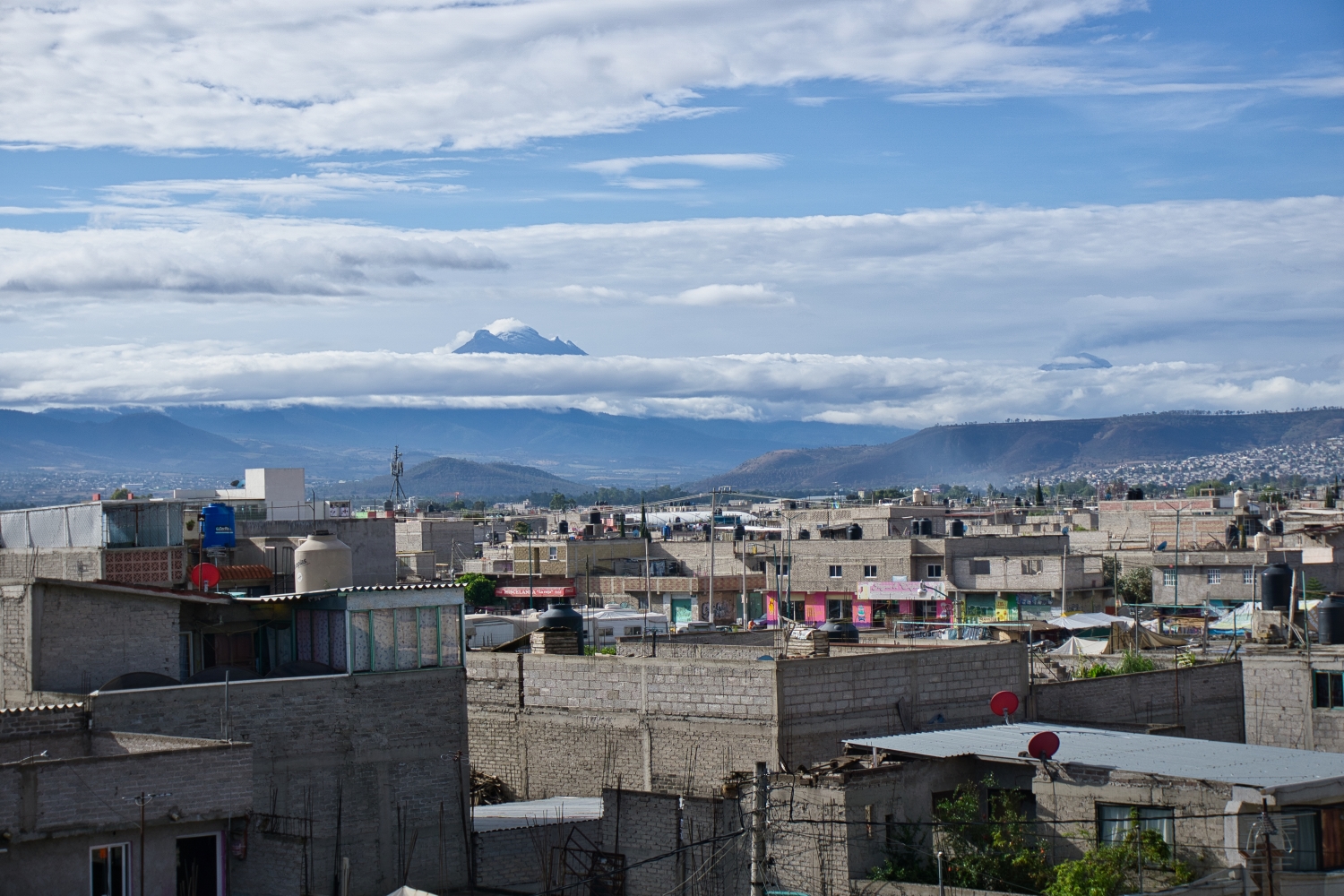Mexico City
Mexico City, originally known as Tenochtitlán, was founded by the Aztecs in 1325. It became the capital of the Aztec Empire and was one of the largest cities in the world by the early 16th century. After the Spanish conquest led by Hernán Cortés in 1521, the city was rebuilt as the capital of New Spain – the oldest capital of the Western Hemisphere.
Growth and Demographics
Over the centuries, Mexico City evolved into a vibrant metropolis, blending indigenous and Spanish influences. From its roots as an Aztec hub to a Spanish colonial stronghold, Mexico City has grown into one of the world's most dynamic urban centers. With a population of over 25 million people in the metropolitan area, Mexico City is the fifth most populous cities globally. It is a melting pot of cultures, ethnicities, and social classes and particularly during the past decade, the numbers of foreigners and migrants living in Mexico City has swelled significantly. The population is predominantly mestizo, with significant indigenous and immigrant communities contributing to its rich cultural tapestry.

Economy
Mexico City is the economic powerhouse of Mexico, contributing around 17% of the national GDP, while attracting over 30% of Foreign Direct Investments. It hosts a diverse economy with key sectors including finance, manufacturing, telecommunications, and tourism. The city is also a hub for cultural and creative industries, further enhancing its economic profile. According to recent reports, the city hosts approximately 15,000 millionaires, including several billionaires, making it a major hub of wealth in Latin America. This concentration of wealth underscores the city's status as an economic powerhouse but also highlights the stark inequality present in the region, with affluent neighborhoods juxtaposed against areas of extreme poverty. While the city drives the nation’s economy with a diverse and dynamic industrial base, addressing the socio-economic disparities remains a critical challenge, as social divides are evident in access to education, healthcare, and employment opportunities.

Social Challenges
Mexico City faces considerable social challenges, including violence, inequality, and social divides. Urban poverty is a pressing issue, with roughly a third of residents living in informal settlements with limited access to basic services. Migration, both internal and from other Latin American countries, has exacerbated these issues, creating a cycle of fragility and vulnerability.
Violence and Inequality
The city struggles with high crime rates and violence, often linked to drug trafficking and organized crime. The homicide rate in Mexico as of the latest reports stands at approximately 25 per 100,000 inhabitants. Domestic violence remains a critical issue in Mexico City with 7 out of 10 women reporting having experienced violence. Despite various efforts to curb violence, these numbers reflect persistent challenges, particularly in urban poor communities, which often experience higher rates of crime, including assaults, robberies, and homicides. Addressing the root causes of violence, such as poverty and lack of opportunities, is essential for creating sustainable improvements in safety and security within Mexico City's urban poor communities.
Urban Poverty
Urban poverty remains a critical issue, with over 30% of residents living in marginalized conditions and areas characterized by urban poverty. These informal settlements are typically located on the city's periphery and suffer from inadequate access to basic services like water, sanitation, healthcare, and public transportation. The rapid urbanization and migration from rural areas have exacerbated the growth of these settlements. Many of these communities exist in a state of legal ambiguity, which complicates efforts to provide essential services and improve living conditions.
Migration
Recent migration patterns to Mexico City reflect a complex interplay of internal and international dynamics. The city’s role as a major migration hub is likely to continue, as it has seen a substantial influx of migrants from other Latin American countries, driven by economic hardships, violence, and political instability in their home countries. This has led to diverse migrant communities settling in various parts of the city, particularly in informal settlements on the city's periphery. In addition, internal migration from rural areas to Mexico City continues to be significant, as many individuals and families move to the city seeking better economic opportunities and access to services. Most of them also settle in informal settlements due to the high cost of living in more established neighborhoods.
Religious and Spiritual Landscape
Mexico City, like much of Mexico, is predominantly Roman Catholic. Approximately 80% of the population identifies as Catholic, a reflection of the country's colonial history and cultural heritage. The evangelical community in Mexico City has been growing and now makes up roughly 10-12% of the population. This increase is part of a broader trend across Latin America, where evangelical Christianity has been expanding rapidly in recent decades. While evangelical churches are active in urban poor communities and provide a sense of hope and community to residents, they often lack a broader missional vision to transform their communities holistically. Most are "inward-focused", which limits their ability to transform the underlying conditions contributing to the poverty and violence affecting many residents. Nonetheless, they could potentially play a more transformative role by expanding their focus and collaborating with other stakeholders.

Engage in Mexico City with Us
Join us in partnering with local communities, ministries, and urban leaders to address urban challenges. We support a variety of community-driven initiatives and leadership training programs aimed at improving living conditions, fostering social cohesion, and promoting spiritual transformation.
Our Partners in Mexico City
Iniciativas Humanas y Sociales A.C. (INHUS) is a well-established NGO based in Mexico City with a proven track record in social research, civic participation, and...
Mosaico Urbano Mexico, originally founded in 2006 under another name, operates on the eastern side of Mexico City, particularly in the Chimalhuacan and Los Reyes...
MIMOMI (Ministerio Movilizador Misionero) is committed to expanding God's Kingdom on Earth, with a special focus on urban centers, guided by the theology and practice...
